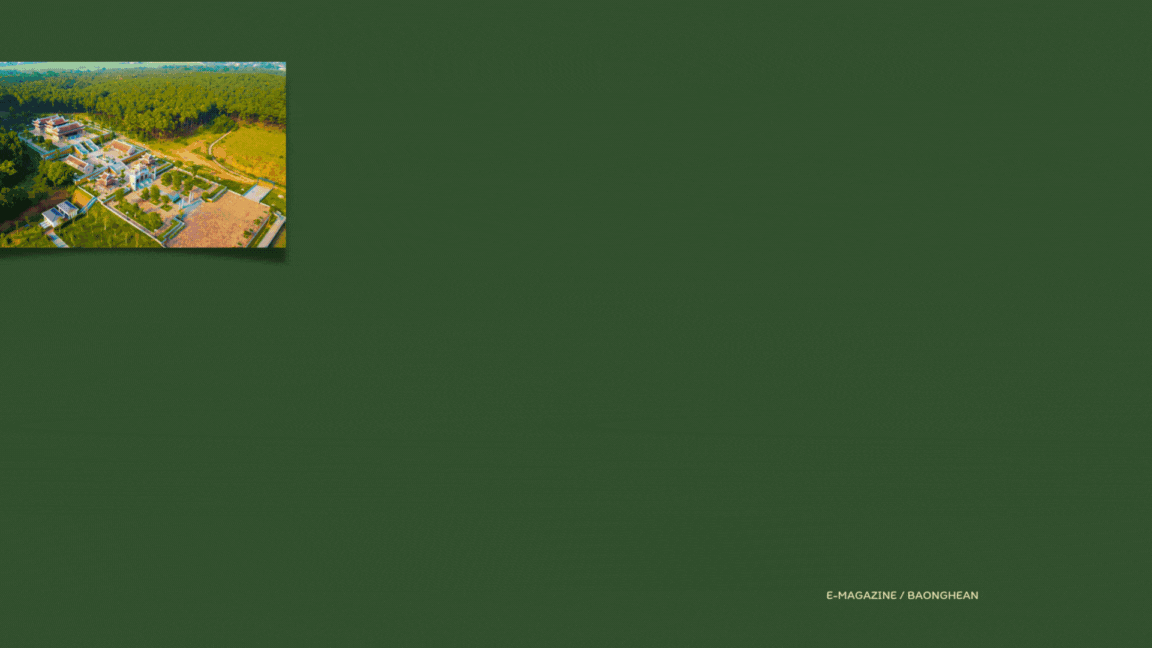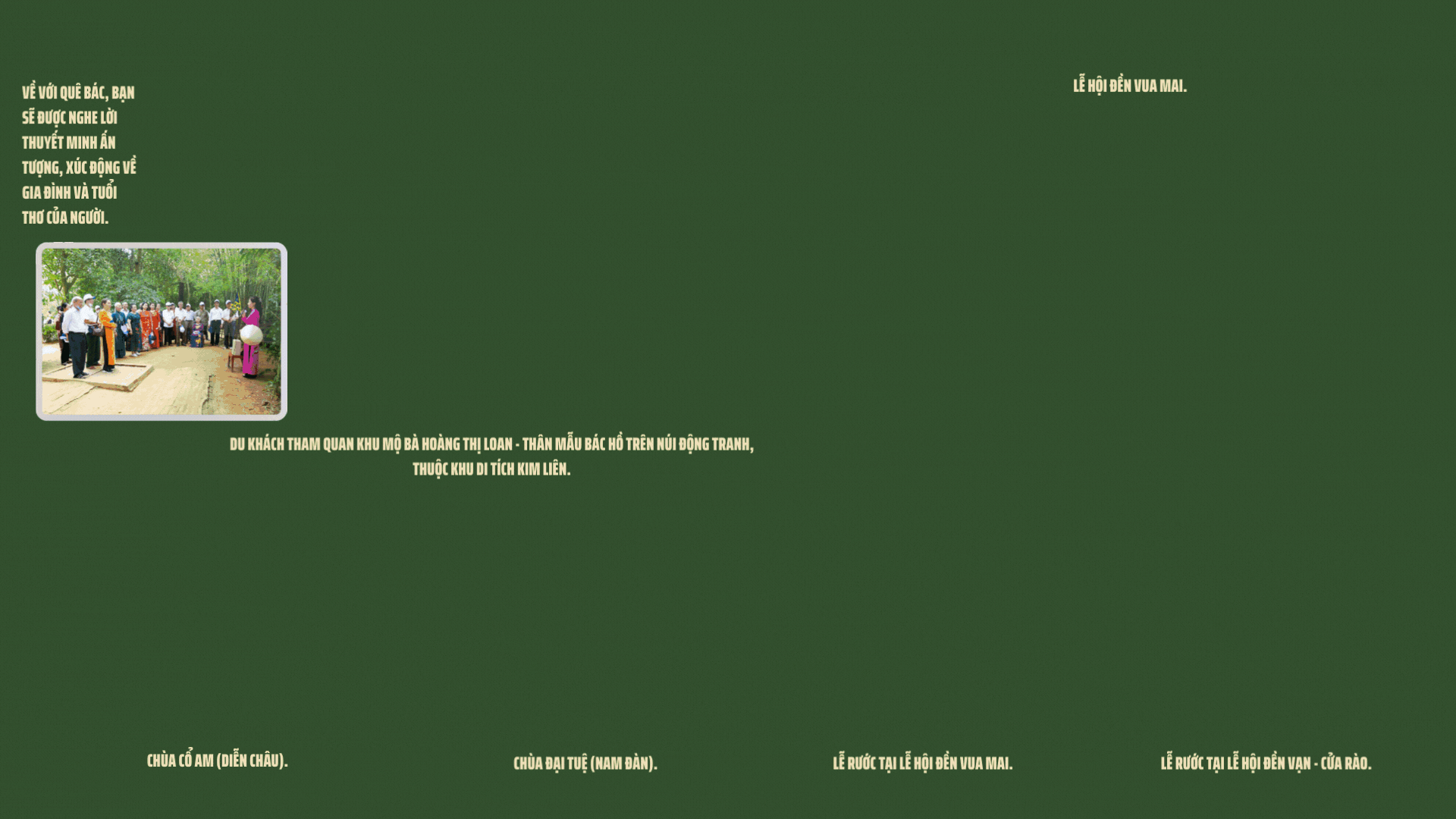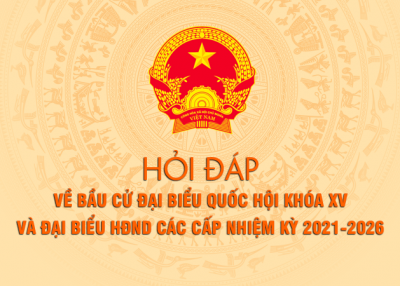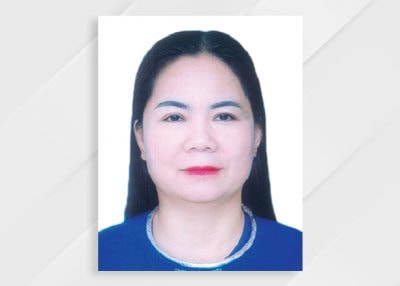


Nghe An province currently has nearly 2,500 historical and cultural relics. This system of relics stretches from the coastal areas to the high mountains, associated with religious beliefs or famous figures and events, and possessing value in terms of architecture, art, history, and culture. Through these relics, the distinctive imprints of cultural traditions and people are reflected, making a significant contribution to the richness, diversity, and uniqueness of the Nghe An cultural region.
In the early days of the new year, the number of tourists visiting temples and pagodas in Nghe An province is higher than usual. Most visitors come to sightsee, admire the scenery, and pray for protection, blessings, and good fortune from the deities and Buddha. At the Corn Temple (Hoang Mai town), the Ong Hoang Muoi Temple (Hung Nguyen district), and several other temples and pagodas in the province, many groups of visitors from northern provinces bring offerings to pray for peace and prosperity.


Coming from Hau Loc district (Thanh Hoa province), Ms. Trinh Thi Hien said: “Every year, our family, along with relatives and friends, rent a car to go to Nghe An at least twice to pray for peace at the beginning of the year and give thanks at the end of the year at Ong Hoang Muoi Temple. Afterwards, we spend time visiting and offering prayers at several places such as Quang Trung Temple in Vinh City, Dai Tue Pagoda in Nam Dan, Truong Bon National Historical Site and Qua Son Temple in Do Luong.”
Among the delegation from Hai Duong province, Ms. Nguyen Thuy Ngan shared: "Nghe An has many sacred temples, including the Ong Hoang Muoi Temple in Hung Nguyen district, near Vinh City. For the past few years, I've been coming here with my friends to offer prayers at the beginning of the year and give thanks at the end. Thanks to this, throughout the year, I and my friends have enjoyed peace of mind, a tranquil life, and peace of mind in our business and maintaining our family life."
As for Mr. Nguyen Huu Son, a resident of Dong Da district, Hanoi, at the beginning of the year he visited some friends in Vinh city and together they went to visit and worship at several historical sites in Nghe An. First, they visited the temple of Emperor Quang Trung on Dung Quyet mountain (Vinh city), then went up to Chung Son temple (Nam Dan), Bach Ma temple (Thanh Chuong), Qua Son temple (Do Luong), and then circled back to Corn temple (Hoang Mai town) – some of the most sacred temples in Nghe An province.
“Each temple possesses its own unique beauty, all bearing an ancient charm and associated with historical legends and figures. These temples all boast majestic scenery, further enhancing the ancient and sacred atmosphere of their cultural and spiritual architecture. Through this, they contribute to affirming the cultural heritage of this land of outstanding people and rich history,” Mr. Son said.

The system of historical relics and cultural and spiritual works in Nghe An not only meets the spiritual needs of the people in the province but also serves the needs of tourists from near and far who come to visit and worship. Among them are special national relics such as the Kim Lien Historical Site, the temple of King Mai, Hoanh Son communal house (Nam Dan), and Nguyen Xi temple (Nghi Loc).
These historical sites are all associated with traditional festivals, including seven traditional festivals and beliefs that have been documented and included in the national list of intangible cultural heritage. These include: the Cờn Temple Festival (Hoàng Mai), the Chín Gian Temple Festival (Quế Phong), the Quả Sơn Temple Festival (Đô Lương), the Ông Hoàng Mười Temple Festival and the Thanh Liệt Temple Festival (Hưng Nguyên), the Bạch Mã Temple Festival (Thanh Chương), and the Xăng Khan ritual of the Thái people in the western districts.
In particular, the ancients summarized the "four sacred temples" of Nghe An province as follows: "First, Corn Temple; second, Qua Temple; third, Bach Ma Temple; fourth, Chieu Trung Temple." While Chieu Trung Temple no longer exists, the other three temples remain "sacred destinations" for visitors from all over. Corn Temple worships the Four Holy Mothers; Qua Temple worships Uy Minh Vuong Ly Nhat Quang; and Bach Ma Temple worships the brave general Phan Da – all benevolent deities revered by the people for generations.
Located along National Highway 1A, Cuong Temple (Dien Chau) is known as a sacred ancient temple, dedicated to Thuc Phan An Duong Vuong and Princess My Chau. With its convenient location and rich history, closely linked to the legend of An Duong Vuong, Cuong Temple is always a popular destination for tourists to visit and worship, especially during the spring season…
Along with beach and resort tourism and eco-tourism and community-based tourism, cultural and spiritual tourism is identified as one of the three pillars of tourism in Nghe An. Therefore, all levels and sectors have paid attention to mobilizing and investing funds to restore and renovate many projects to serve the needs of the people and tourists from all over. These include the Project to Preserve and Renovate the Kim Lien Historical and Cultural Relic Area associated with tourism development (Phase I); the Nghe Tinh Soviet Memorial Area; Dai Tue Pagoda; Co Am Pagoda; Ong Hoang Muoi Temple; Corn Temple; Qua Temple; Cuong Temple; the Temple of Emperor Quang Trung; the King Mai Shrine and Tomb Complex; Chin Gian Temple; Dao Ngu Pagoda; Van - Cua Rao Temple…


Currently, Nghe An is in the midst of its spring festival season, with excitement and joy everywhere. In 2023, the province had 29 traditional festivals at the district and provincial levels, 20 of which took place in the spring. This is an opportunity for people to enjoy cultural and spiritual values and for localities to develop various types of services to attract tourists.
Recently, we had the opportunity to travel to the remote highlands of Tuong Duong district to attend the Van - Cua Rao Temple festival. Located in a beautiful spot at the confluence of the Nam Non and Nam Mo rivers, with a suspension bridge spanning the river in front, the Van - Cua Rao Temple is renowned for its sacredness, attracting a large number of visitors during the festival. Visitors come to worship at the temple, pray for good fortune and peace, and immerse themselves in the festival activities to explore and experience the cultural life of the ethnic communities living in this region.
The Van Temple - Cua Rao Festival is an opportunity for tourists to experience the cultural identity and promote the unique cultural values of the homeland. Tuong Duong district has directed the enhancement of services to meet the needs of tourists. Traditional houses of ethnic groups (Thai, Mong, Kho Mu, O Du, Tay Poong, and Kinh) are built and decorated according to ancient customs for tourists to visit and learn about. In addition, folk games such as throwing the ball, stick pushing, stilt walking, swinging, and cultural exchange programs are organized for tourists to enjoy and experience. Local food stalls (grilled chicken, grilled meat, grilled fish, bamboo rice, five-colored sticky rice) cater to the demand for mountain produce. Therefore, many people have traveled long distances to Tuong Duong to celebrate the Van Temple - Cua Rao Festival.
Along with the Van Temple - Cua Rao Festival, the beginning of the Year of the Rabbit in Nghe An also features many traditional festivals with strong cultural identity, such as: the King Mai Temple Festival (Nam Dan), the Van Loc Temple Festival (Cua Lo town), the Corn Temple Festival (Hoang Mai town), the Qua Temple Festival (Do Luong), the Nguyen Xi Temple Festival (Nghi Loc), and the Cuong Temple Festival (Dien Chau)... Each festival contains its own unique cultural value, creating a distinctive and attractive experience for tourists.
To attract tourists, in addition to the rituals, the Organizing Committee of the King Mai Temple Festival focuses on organizing folk games and sports such as traditional wrestling, card games, cockfighting, etc. The wrestling competition, in particular, is lively and attracts thousands of spectators. Through this, visitors learn more about the traditions of the land and people of King Mai's homeland, and enjoy and purchase famous local products from the ancient capital of Van An.
With the Cờn Temple Festival, besides preserving and promoting cultural identity and enhancing the spiritual life of the people, the festival also aims to attract a large number of tourists to the coastal countryside. Therefore, along with the processions and rituals of the festival, the Organizing Committee also enhances traditional games such as: boat racing, card games, and organizing the Hoang Mai beauty contest. Especially the "Running Oi" custom of the young people of Quynh Phuong coastal village, which has both spiritual and folk elements, is truly captivating for both locals and tourists.
It can be said that by attending the Cờn Temple Festival, visitors will be immersed in a joyful atmosphere and enjoy the beautiful scenery, the flavors of the cuisine, and feel the depth of the maritime culture.

Returning to a rural festival offers visitors the opportunity to discover the traditions, beauty of the land, and the people of that region. At the Quả Sơn Temple festival in Bạch Đường (Đô Lương), visitors can experience the sacredness of the ancient capital of Nghệ An, where King Lý Nhật Quang once chose to establish a foothold to explore and protect the southern border. At the Làng Vạc Festival (Thái Hòa town), visitors can commemorate the merits of the Hùng Kings who founded and defended the nation, reconnecting with their roots and the flow of history spanning thousands of years. At the Chín Gian Temple Festival (Quế Phong), visitors from all over can visit the ancient Mường Tôn – the center of the nine villages and ten districts according to the Thái ethnic group's beliefs.
Thus, with its long-standing historical and cultural traditions, forming fertile "alluvial plains" and containing abundant "sedimentary resources," Nghe An is an ideal destination for tourists to experience the beauty of its cultural and spiritual life.


